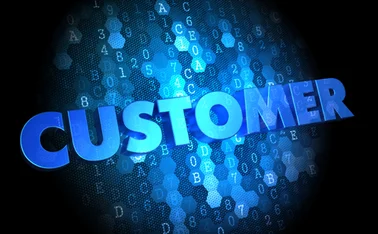
Motor fraud: Reaching critical mass

Need to know
- Through My Licence, insurers can get DVLA data before quoting a driver
- The voluntary system aims to reduce inaccuracies and fraud
- Only 30% of the industry is using My Licence
- Several large insurers are due to join in H1 2017, which should take market participation above 50%
Although the adoption of My Licence has been slow to date, the Motor Insurers’ Bureau has predicted an increase in uptake to 50% this year. Will 2017 see the service reach critical mass?
Motor insurers have been slow to adopt My Licence but uptake is expected to grow this year as some big names are upgrading their technology to allow access to the data hub, giving them access to the driving history of applicants.
As the industry looks towards enhancing the customer experience and eradicating fraud from all corners of the market where it lurks, insurers are trying new ways of doing just that. But, as is always the way, there remains a slow and sceptical approach to solutions offered up. Time and again, insurers put their heads together in an attempt to reach a consensus on what is the best way to tackle fraud, increase customer satisfaction and accurately price risk and policies. And, repeatedly, the discussion ends in frustration as firms remain on different pages of the same book and cease to stamp out problems.
At Post's 2016 Insurance Fraud Summit last November, there was a heated discussion on My Licence and how the industry can use it to its advantage. Since summer 2014, drivers looking for motor insurance may be asked for their driving licence number before being given quotes. My Licence is a joint initiative of the Driver and Vehicle Licensing Agency, the Department for Transport, the Association of British Insurers and the Motor Insurers’ Bureau. It aims at tackling fraud and offering cheaper premiums ‘for safe and honest motorists’, according to the description on its website.
The system is a data hub that, through the MIB Hub’s secure link, collects the details of drivers from the DVLA. The data gives insurers a detailed overview of an applicant’s driving history and possible convictions. Ultimately this reduces the likelihood of fraud at the application stage, eliminates inaccuracies and allows insurers to accurately price premiums.
Making declarations
The ABI estimates that one in five motorists under-declare their driving convictions. While this could be done innocently, some are doing so in order to reduce their premiums. Figures also show that 7% are over-declaring convictions. One benefit of My Licence is that it minimises mistakes at application point, ensuring accuracy for insurers and insureds. The ABI estimates My Licence saves ‘honest customers’ an average of £15 on their car insurance.
However, uptake remains slow. Only 30% of the industry is using My Licence, the MIB’s head of data services Kaushik Patel told Post’s fraud conference.
At the My Licence Summit last December, insurers were urged to use the service or risk being left behind grappling with fraud.
Axa has said that it intends to use the service in the future for exactly that reason. And Allianz is already registered; its head of technical and business standards Tim Pitts says it could have a positive impact in the broking space.
“Allianz is supportive of My Licence and believes that the database will help insurers price more accurately and streamline the customer journey by removing questions. It also has the potential to tackle fraud and accidental misrepresentation.
“In the broker space, fresh impetus is needed by insurers and software houses to enable the broker market to use this key facility for the benefit of their customers and the wider market.”
The low uptake could be linked to a critical mass issue.
Steve Jackson, head of the financial crime unit at Covéa, says that the success of the service relies heavily on it being more widely used in the industry.
“The technology exists to be able to access that data quickly, but it seems this is not being taken up by insurers on a wholesale basis.
“My Licence offers a solution, but for it to be successful, it needs the wider insurance market to adopt this principle of improving the customer journey, which will lead to improved pricing and reduced fraud.”
Convictions are a large part of assessing risk when looking at motor insurance policies. The capability of My Licence to drag up a complete overview of previous convictions is valuable to insurers. The quality of data gleaned from a customer’s driving licence number also means there is a reduced need for interpretation as the details are presented in a standard way.
However, the service is not compulsory. As it stands, motorists can choose not to
hand over their licence number, and instead self-declare their driving history.
According to Jackson, customer attitudes towards car insurance mean that some may feel entitled to misrepresent their information in order to get a cheaper quote.
“We know consumers perceive motor insurance as a grudge purchase and that they must have it to be able to drive,” he notes.
“In view of this, most will shop around to find the cheapest policy and, in some instances, may misrepresent their convictions or other material information, which prevents us from properly assessing the risk. Any deliberate misrepresentation of a material fact to secure a reduced premium constitutes fraud, albeit many see this practice as acceptable and less serious than claims fraud.”
Reshaping relationships
If members of the public are flippant towards fraud, it could be pertinent to reshape the relationship between insurers and customers by creating a service that works for them.
“CGI has been and remains a strong proponent of the My Licence service,” says its vice-president and head of insurance Neil Sadler. “Consumers benefit through reduction in question sets and the removal of potential non-disclosure, while the insurer is able to assess risk and price risk with confidence that the data provided is correct.
“An example we often use in demonstration is a driver with an ‘automatic only’ licence obtaining quotations for a manual car. Using the My Licence service, this would never happen.”
Despite initial concerns around staff and customer engagement, Admiral says its customers have welcomed the service and found it easy to navigate.
“We had initial concerns, mirrored with those publicised across the industry, but have found we have been able to successfully overcome them,” says Wendy Holloway, underwriting technical operations manager at Admiral.
“As an example, we were concerned how our staff would handle queries when they are unable to see the data and we worried about subsequent complaints from customers. We have found though that customers are becoming more willing to provide their driver licence number and that complaint rates are extremely low.
“Our fraud rates for customers who provide their driver licence number are reduced and we have integrated a sales process that customers and staff are happy to work with.”
However, Simon Warsop, chief underwriting officer at Aviva, says it’s hard to measure the true effects any system has on fraud, whether good or bad. Aviva currently uses My Licence but Warsop says that it is nearly impossible to give an accurate reading of how the system has reduced fraud.
“My Licence is a fantastic service in the sense that it allows us to carry out important jobs on behalf of the customers and ultimately save them money,” he says.
“By taking data straight from My Licence, we can ask the customer fewer questions at the application point. But first and foremost, it allows us to weed out fraudsters because the data means they can’t lie about how long they’ve held a licence or any previous convictions, the factors we will assess when pricing the policy.”
Insurer frustration
It is perhaps frustrating for insurers to know that application fraud does happen and there is no way of totally stamping out the problem. Warsop believes more should be done to raise the profile of My Licence.
“One of the biggest disappointments of My Licence is that it hasn’t become compulsory,” he says.
“It’s not for any insurer to say where that compulsion will come from but it has to be mandated by a regulator or a body like the ABI. If it isn’t compulsory, then someone needs to come out as saying that insurers will attract more fraud if they aren’t using the system.
“We know that only around 35% of customers on price comparison websites are handing over their driving licence details. We know that there will be fraudsters within the remaining 65% of those customers who lie about themselves and withhold crucial information in order to lower the cost of their premium.”
It should also be highlighted that having a well-stocked fraud-detecting tool box gives an insurer a competitive edge over other firms.
“What competitors ought to know is that a lot of firms are using My Licence and are looking at the data provided by it to get a more accurate reading of the customer,” says Warsop. “The companies that aren’t using it will be more open to fraudsters. Using the system definitely gives firms a competitive edge.”
Standards in place
James Dalton, director of general insurance policy at the ABI, points out that insurers can’t force customers to submit their data but if adoption picks up, the industry will be able to address the problem internally.
“Membership of My Licence continues to grow. Participation can invariably involve IT system changes as well as ensuring that adequate security and data protection standards are in place, which can take time,” he says.
“That said, we understand from the MIB that several large insurers are due to join in the first half of the year, which should take market participation above 50%. We understand that a number of larger insurers will be implementing system changes in the first half of the year, including adoption of My Licence.
“Insurers cannot force customers to provide licence details. It is up to individual insurers to decide if they will offer cover if the applicant chooses not to provide licence details when these are asked for. An insurer may be willing to offer cover on the basis of self-declared driving history, but any quote may be for a higher price as they cannot check accuracy of the information supplied with the DVLA.”
Although the MIB is predicting the 50% uptake rise in the first quarter of 2017, the pickup rate has been notoriously slow so far. The MIB has said that this year will see a brand new My Licence project that will see the service attached to a bigger system implementation, making it easier for insurers to use. Patel says that the industry has previously been merely slow – not reluctant – to use the data service.
“With certain legislative changes, such as Flood Re, that have occurred within the industry, insurers have been more preoccupied with those changes rather than My Licence development. But those changes are coming to an end and so the MIB is hopeful that there will be a refocus on using it,” he says.
“It’s a matter of timing and we are working towards better communication surrounding how the service can be of benefit to the industry. It’s not so much that insurers are reluctant but it just hasn’t been at the forefront of their minds.”
Detrimental effect
Should insurers chose to ignore the benefits provided by the system, risks will be assessed on assumption rather than evidence and the effect on claims could be detrimental. Sadler warns that relying on customers to remember all of the necessary information isn’t realistic as they are likely to forget much of what is needed.
“Submitting a driving licence number allows an insurer to quickly validate that the person requesting a quote exists and is held within the DVLA records, as well as automatically retrieving licence conditions and convictions,” he says.
“Not using the system means that insurers assess risk based on submissions by the consumer. Assuming you have had a conviction, can you say (without checking) the day, month and year that it occurred? Many people simply do not retain that information but they do guess – the consequence of that guess could be the cancellation of a policy or repudiation of a claim. Both of which cost the insurer and consumer – not to mention that manual entering of the data leaves the insurer open to potential fraud.”
If the MIB predictions prove true and half of the market does use My Licence this year, the critical mass may be reached that will make the system an effective tool against fraud.
Motor Insurance World
 Following a fantastic launch, we are delighted to announce the return of Motor Insurance World for 2017.
Following a fantastic launch, we are delighted to announce the return of Motor Insurance World for 2017.
Last year saw more than 35 speakers from insurers, driverless car leaders and motor manufacturers, plus the Under Secretary of State from the Department for Transport.
The road to success in a rapidly changing motor world remains anything but smooth, and technology continues to disrupt. The motor insurance market will have to innovate like never before in order to serve the customers of today and tomorrow.
Register your interest today to be the first to hear when the exciting plans are unveiled, at www.motorinsuranceworld.co.uk
Only users who have a paid subscription or are part of a corporate subscription are able to print or copy content.
To access these options, along with all other subscription benefits, please contact info@postonline.co.uk or view our subscription options here: http://subscriptions.postonline.co.uk/subscribe
You are currently unable to print this content. Please contact info@postonline.co.uk to find out more.
You are currently unable to copy this content. Please contact info@postonline.co.uk to find out more.
Copyright Infopro Digital Limited. All rights reserved.
As outlined in our terms and conditions, https://www.infopro-digital.com/terms-and-conditions/subscriptions/ (point 2.4), printing is limited to a single copy.
If you would like to purchase additional rights please email info@postonline.co.uk
Copyright Infopro Digital Limited. All rights reserved.
You may share this content using our article tools. As outlined in our terms and conditions, https://www.infopro-digital.com/terms-and-conditions/subscriptions/ (clause 2.4), an Authorised User may only make one copy of the materials for their own personal use. You must also comply with the restrictions in clause 2.5.
If you would like to purchase additional rights please email info@postonline.co.uk








